Nestled in the heart of the South Pacific, Nouméa, the vibrant capital of New Caledonia, beckons travelers with its sun-kissed beaches, unique blend of cultures, and a history that intertwines the indigenous Kanak heritage with French influences.
Whether you’re a history enthusiast, beachcomber, or a gourmet explorer, Nouméa promises a trove of experiences waiting to be unearthed.

Geographical Overview
Location and Setting in the Pacific Ocean
Nouméa, a sparkling jewel of the South Pacific, is strategically positioned on the southeastern coast of New Caledonia’s main island, Grande Terre.
Surrounded by the azure waters of the Pacific Ocean, the city boasts a natural harbor that has made it a prime location for both historical and modern maritime activities.
Its proximity to other Pacific islands, including Vanuatu to the northeast and Fiji to the east, places Nouméa at the crossroads of diverse cultural and trade routes. This makes the city not just a geographical marvel, but also a melting pot of cultures and traditions.
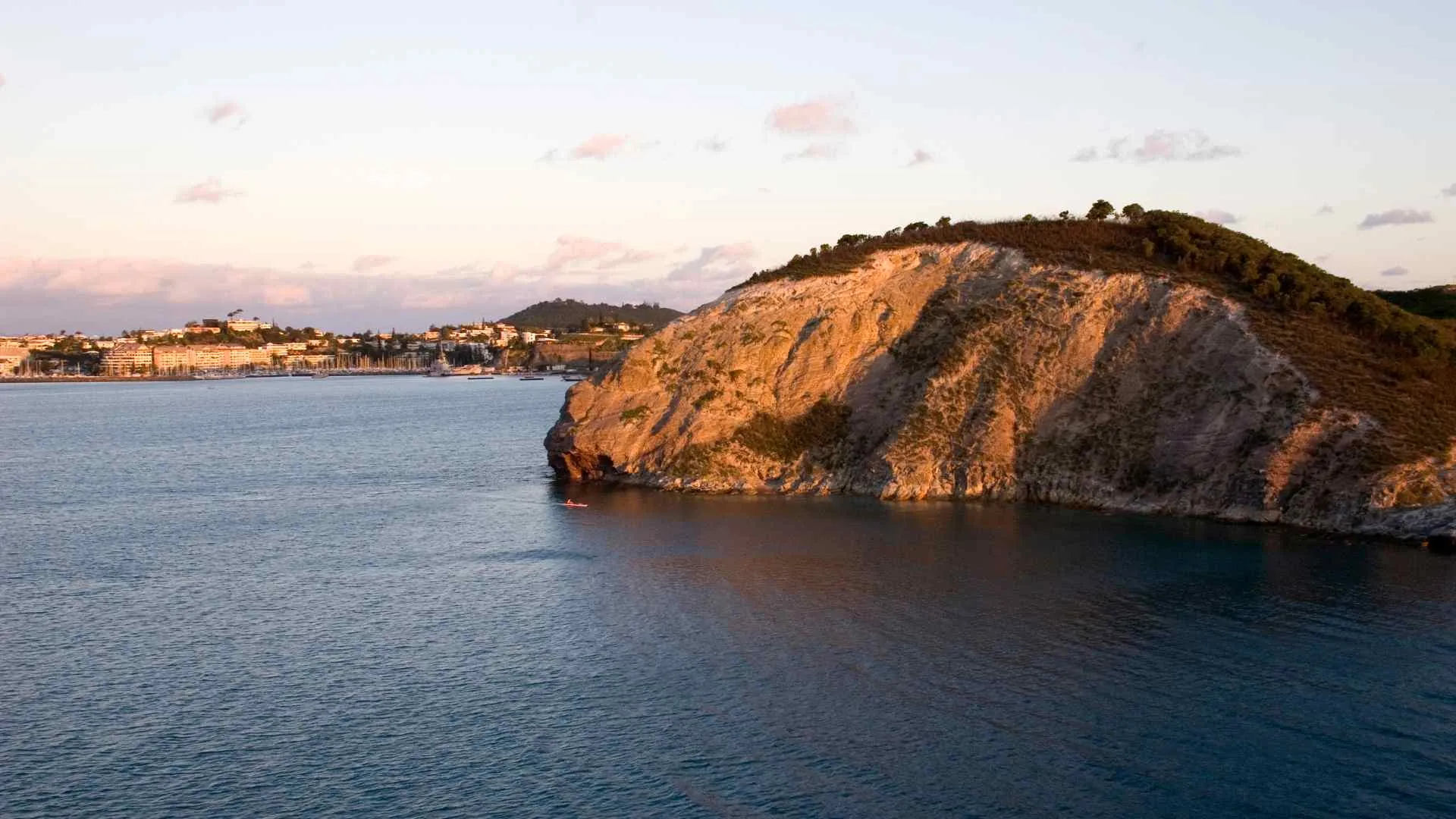
Climate and Best Times to Visit
Nouméa experiences a tropical climate, characterized by warm, humid summers and milder winters.
The hottest months usually span from November to March, where temperatures can soar, and tropical showers are frequent. On the flip side, the period from April to October offers cooler and drier conditions, making it the most favorable time for tourists.
If you’re looking to bask in the sun on Nouméa’s golden beaches, the dry season provides ample opportunity.
However, those keen on experiencing the island’s vibrant festivals and cultural events should plan their visit around the local calendar, as Nouméa bursts into life with celebrations throughout the year.
Understanding Nouméa’s Microclimates
While the broader climate categories hold true, Nouméa and its surrounding regions possess microclimates.
Coastal areas typically maintain a balmy, oceanic feel, while the interiors, especially the higher altitudes, can get surprisingly cooler. It’s always a good idea to pack a light jacket or sweater, even if your plans predominantly involve beach-hopping.
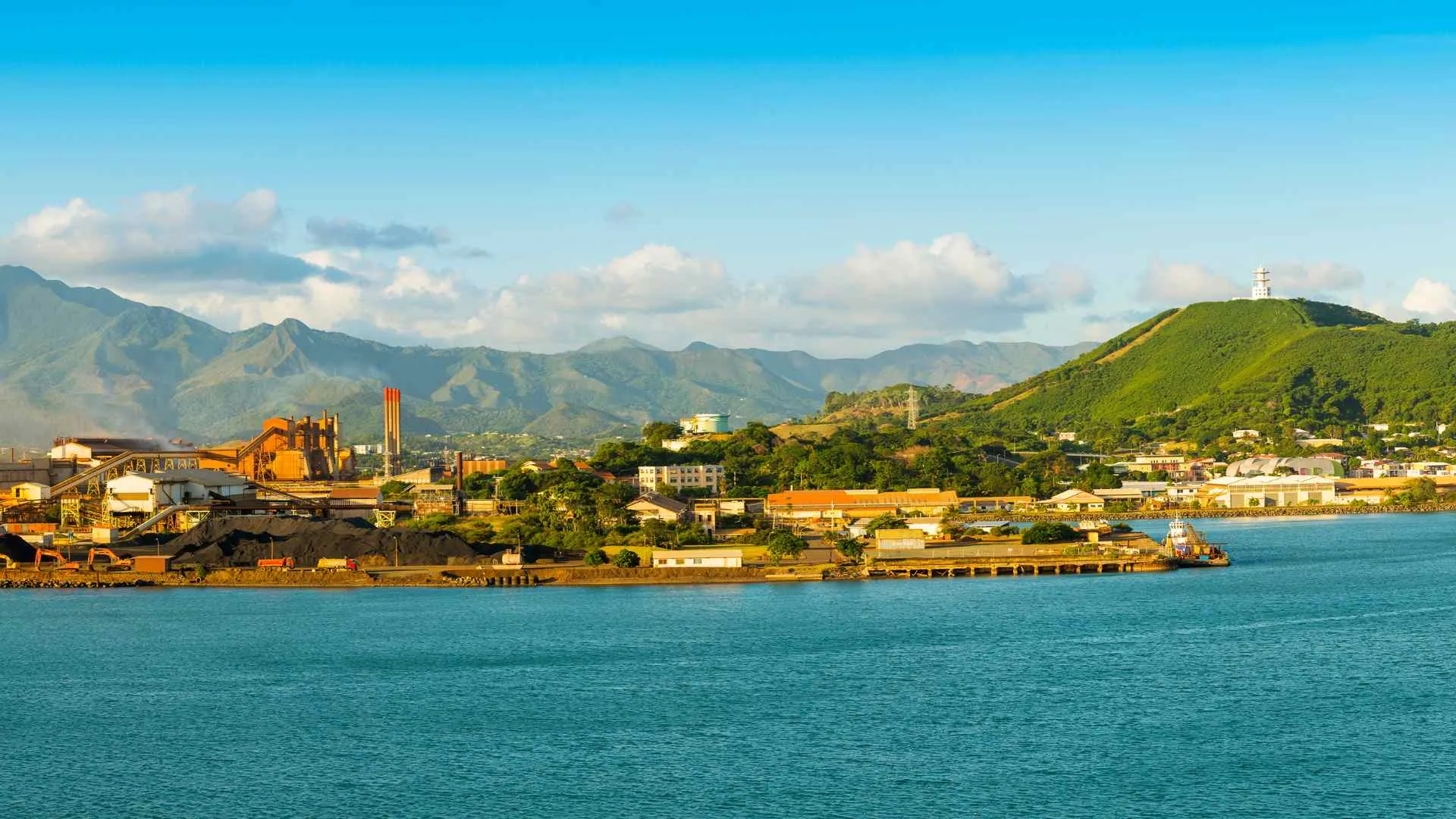
History and Culture
Indigenous Kanak Culture and Influence
The rich tapestry of Nouméa’s history begins with its earliest inhabitants—the Kanak people. These indigenous Melanesians have called New Caledonia home for more than 3,000 years.
Their deeply-rooted traditions, oral histories, and art forms, particularly intricate wood carvings and woven fabrics, continue to influence Nouméa’s cultural landscape.
In and around Nouméa, you can find traditional Kanak structures called “cases,” distinguished by their conical thatched roofs. These serve as poignant symbols of the city’s enduring indigenous heritage.
The Kanak Path to Modernity
Though they have assimilated various influences over the centuries, the Kanak people persistently champion their distinct identity.
Contemporary Kanak art, music, and dance seamlessly blend ancient motifs with modern expressions, exemplifying Nouméa’s harmonious cultural fusion.
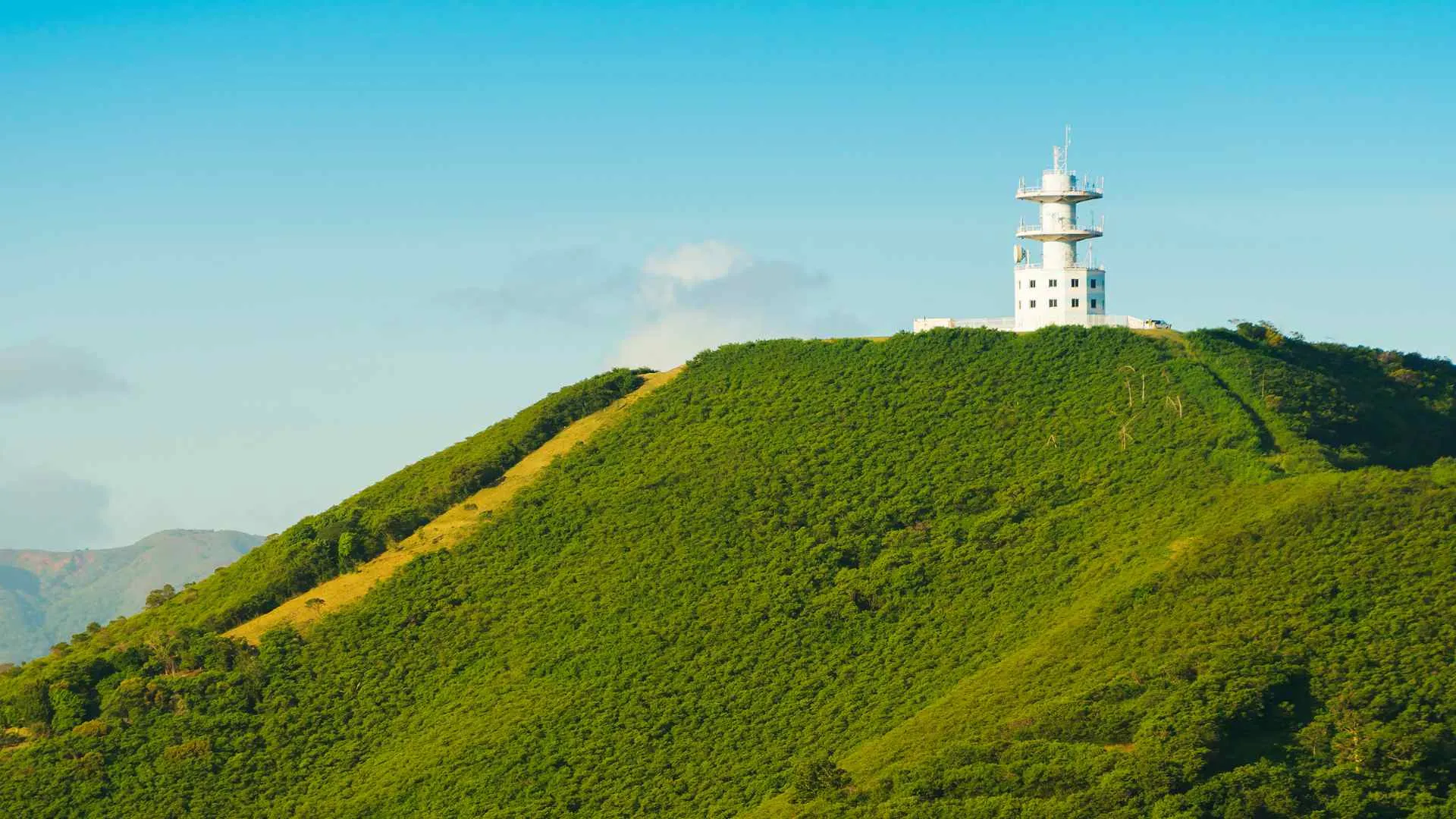
French Colonization and Its Impact
In the mid-19th century, New Caledonia’s narrative took a significant turn when France claimed it as a colony. Nouméa, then a small Kanak village, was transformed into a bustling colonial hub.
With the French came infrastructural advancements, European architecture, and a new socio-political landscape.
The influence of this colonization is palpable even today. From Nouméa’s elegant boulevards and French-inspired bistros to its administrative and educational structures, the French touch is omnipresent.
French remains the official language, though many locals fluently speak both French and their indigenous dialects.
Modern Day Nouméa: A Blend of Cultures
Today’s Nouméa is a vibrant fusion of the old and the new. While the city proudly showcases its Kanak roots and French colonial legacy, it also embraces influences from other Pacific islands, Asia, and beyond.
This cultural melange is evident in everything from the city’s culinary delights to its lively festivals.
Nouméa’s Multicultural Celebrations
A testament to its multicultural ethos, Nouméa hosts various festivals celebrating its diverse heritage.
Whether it’s the traditional Kanak dances during the Yam Festival or the grandeur of the Bastille Day celebrations, there’s always a cultural event to immerse oneself in.
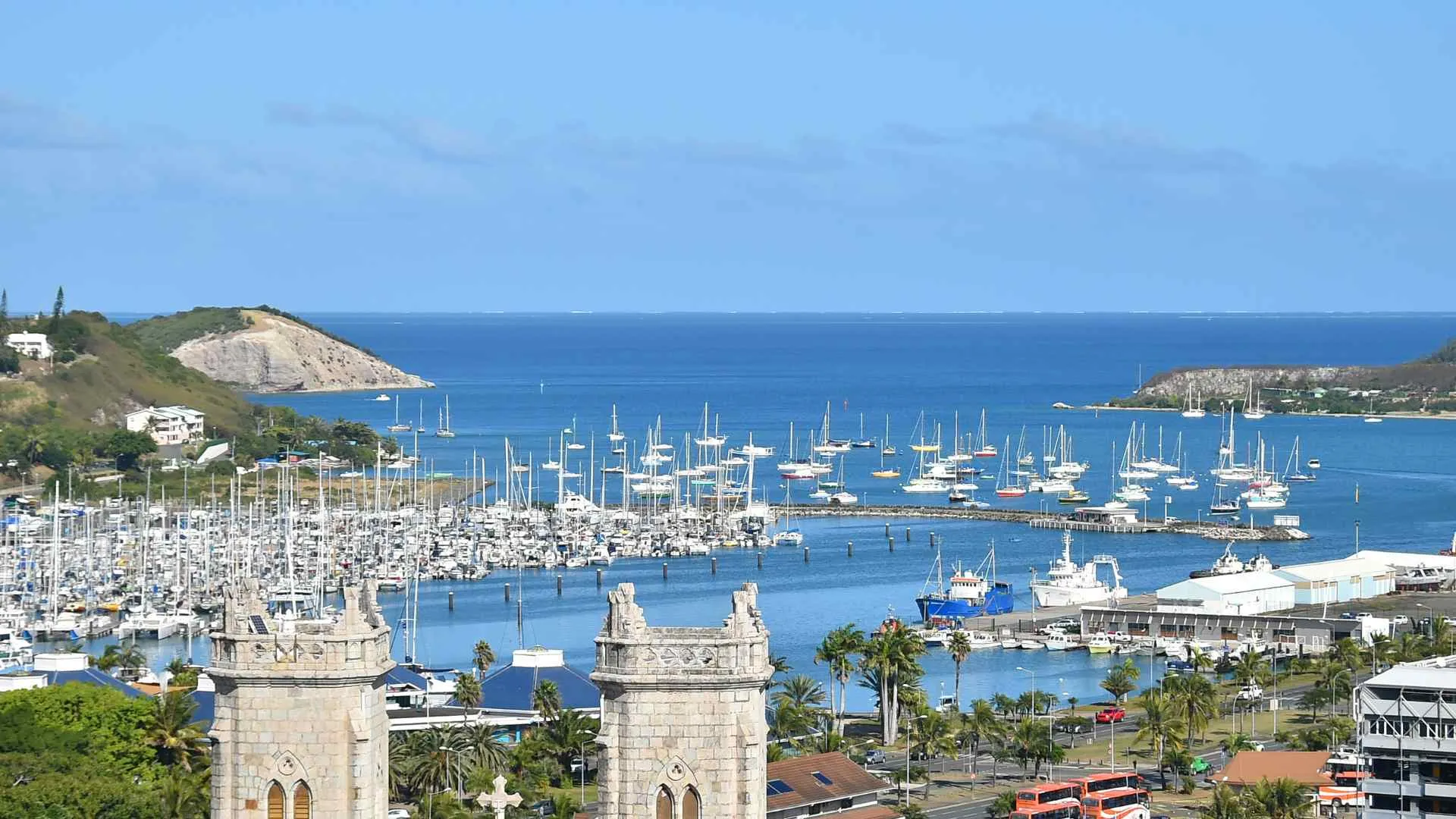
Getting There and Around
Major Airports and Sea Ports
Touching down in Nouméa is a breeze, thanks to its well-connected transport hubs.
La Tontouta International Airport is the primary gateway for international travelers, located about 50 kilometers northwest of Nouméa. Regular flights from major cities in the Pacific, Asia, Australia, and New Zealand ensure easy accessibility to this island paradise.
For those arriving by sea, the Port of Nouméa is one of the South Pacific’s busiest cruise ports. Whether you’re on a luxurious cruise or a cargo vessel, this port welcomes a diverse array of maritime visitors.
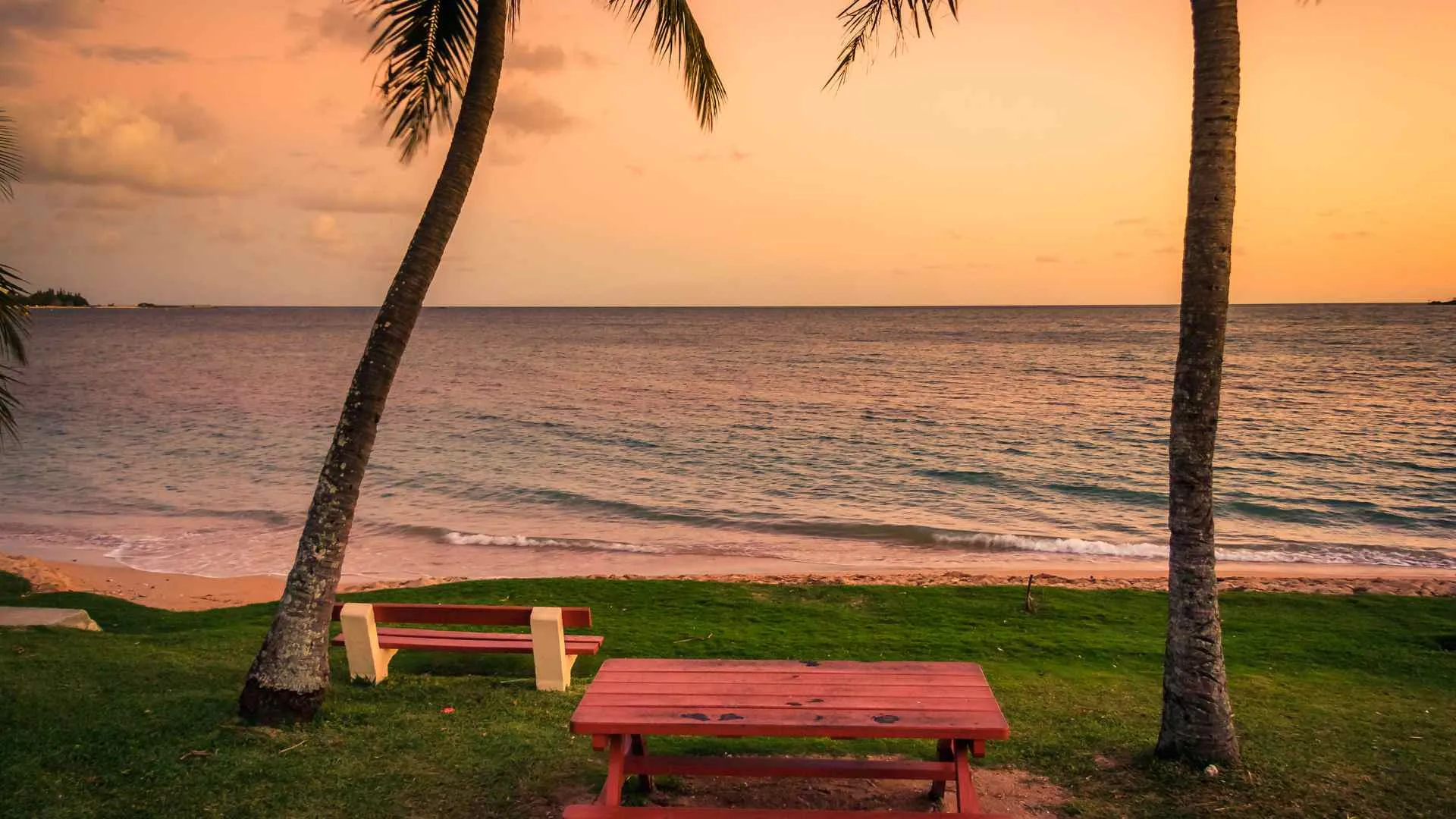
Local Transportation: Buses, Taxis, and Rental Options
Navigating Nouméa is relatively straightforward. The city offers a plethora of transportation options to fit every traveler’s needs.
Buses
The Karuïa Bus service efficiently covers Nouméa and its suburbs. With regular routes, well-maintained buses, and affordable fares, it’s a favored choice for both locals and tourists.
Taxis and Ride-Sharing
Taxis are readily available, especially around hotels, shopping centers, and other attractions. For tech-savvy travelers, ride-sharing apps have also made inroads into Nouméa, offering a convenient alternative to traditional cabs.
Rental Options
For those who value independence and wish to explore at their own pace, renting a car or scooter is an excellent option. Numerous rental agencies operate in Nouméa, with offerings ranging from compact cars to SUVs.
Driving Tips and Road Conditions
Driving in Nouméa is a pleasure, with its scenic coastal routes and well-maintained roads. However, there are some key points to remember:
- Drive on the Right: As in mainland France, traffic flows on the right-hand side of the road.
- Speed Limits: Generally, the speed limit in Nouméa’s city center is 50km/h, which might vary on highways and rural roads.
- Parking: While there are ample parking spaces in the city, it’s wise to familiarize oneself with designated parking zones and related fees.
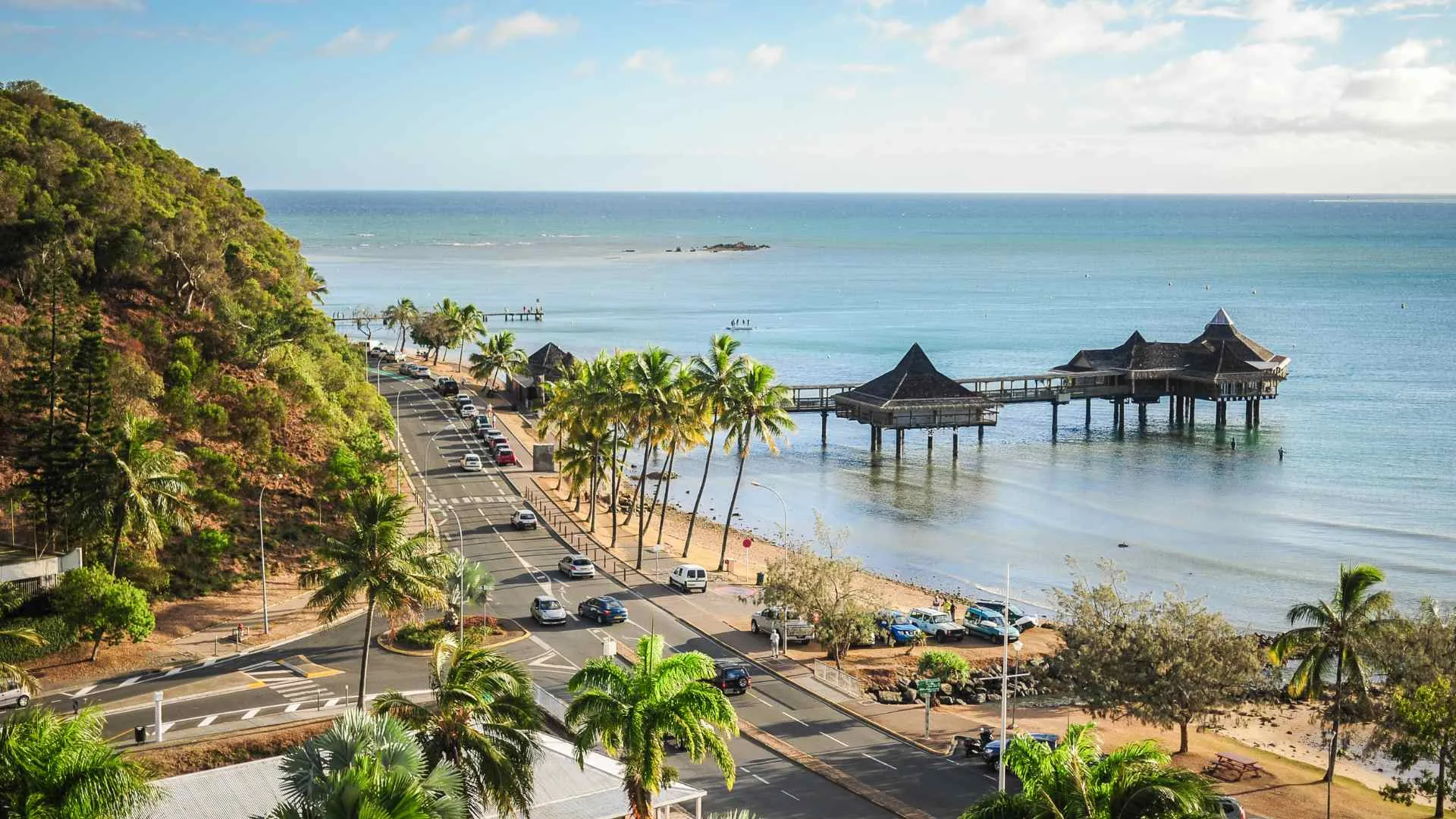
Accommodations
Nouméa, being a sought-after tourist destination, boasts a diverse range of accommodations that cater to every traveler’s needs and budgets. From swanky resorts with ocean views to cozy, budget-friendly stays, the city promises a memorable sojourn.
Range of Options from Luxury Resorts to Budget Stays
Luxury Resorts
For those seeking a lavish escape, Nouméa does not disappoint. The city is home to several upscale resorts offering panoramic sea views, gourmet dining experiences, and world-class amenities.
These establishments, often located along the coastline, promise a blend of relaxation and indulgence.
Mid-Range Hotels
Balancing comfort with value, Nouméa’s mid-range hotels are perfect for families, couples, and business travelers alike. Many of these establishments are centrally located, providing easy access to the city’s major attractions and commercial hubs.
Budget Stays and Hostels
Travelers on a shoestring can still enjoy Nouméa’s charm without burning a hole in their pockets. The city boasts a variety of hostels, guesthouses, and budget hotels that offer clean and comfortable lodgings.
Authentic Experiences: Traditional Kanak Huts and Homes
For a truly unique experience, consider staying in a traditional Kanak hut or a local homestay. These accommodations provide an intimate glimpse into Nouméa’s indigenous culture and way of life.
Not only do they offer a chance to connect with the local community, but they also promote sustainable tourism.
Recommendations for Family, Couples, and Solo Travelers
Families
For families visiting Nouméa, resorts with kid-friendly amenities or self-catering apartments are often the preferred choice. These accommodations provide the convenience of home-like facilities and ensure a comfortable stay for all members.
Couples
Nouméa’s romantic ambiance is best enjoyed at boutique hotels or beachfront villas. Many establishments cater specifically to couples, offering secluded stays, spa packages, and romantic dinners by the ocean.
Solo Travelers
Safety and convenience are paramount for solo travelers. Nouméa’s hostels and budget accommodations often become a hub for like-minded individuals, fostering connections and shared experiences.
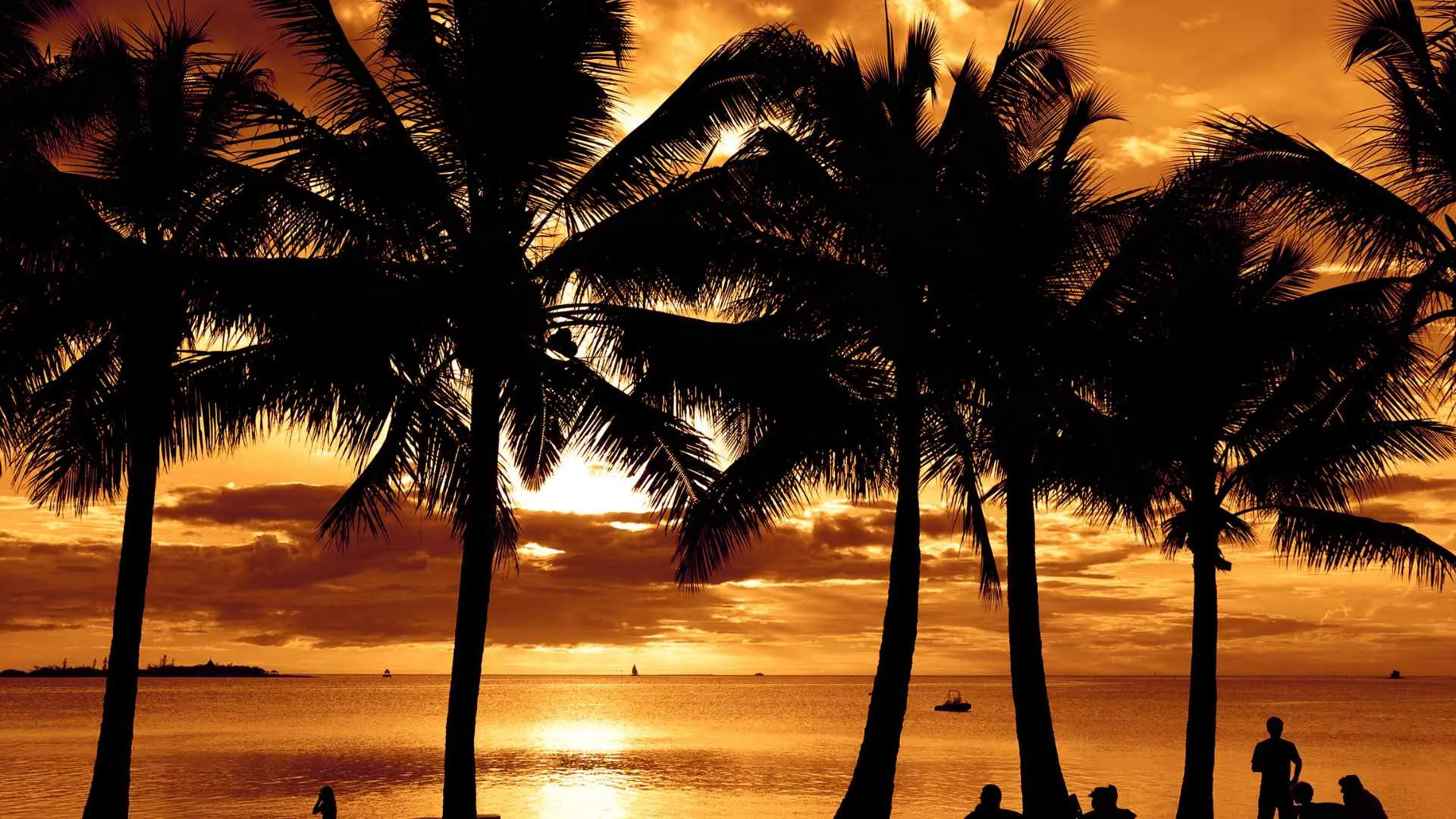
Cuisine and Dining
Nouméa, with its rich cultural tapestry, promises a culinary journey that’s as diverse as its history. A melding of indigenous flavors with French sophistication, the city’s dining scene is a delightful exploration of tastes and textures.
Traditional Kanak Delicacies
The heart of Nouméa’s local cuisine lies in its indigenous Kanak dishes.
Bougna:
A traditional Kanak specialty, bougna is a savory dish made from yams, bananas, sweet potatoes, and meat or fish.
All these ingredients are wrapped in banana leaves and cooked in an earth oven using hot stones. This slow-cooked delicacy is a must-try for anyone looking to savor the authentic flavors of Nouméa.
Venison and Seafood:
Given the abundant surrounding waters and lush landscapes, seafood and venison are staple proteins in many traditional dishes. Grilled lobster, crab, and freshly caught fish are local favorites, often seasoned with native herbs and spices.
French Influence and Modern Fusion
Nouméa’s French colonial history shines through its culinary offerings.
Pâtisseries and Bakeries:
Stroll around Nouméa, and you’ll encounter delightful bakeries offering freshly baked baguettes, croissants, and an array of pastries. These establishments, reminiscent of Parisian cafes, are perfect for a leisurely breakfast or afternoon tea.
Gourmet Dining:
For a fine dining experience, Nouméa boasts several upscale restaurants where chefs craft exquisite dishes, combining local produce with French culinary techniques. Here, you can relish everything from foie gras to escargot, paired with fine wines.
Street Food and Casual Eats
For those keen on experiencing Nouméa’s vibrant street food culture:
Food Trucks and Stalls:
These mobile eateries offer a variety of snacks, from grilled fish skewers to hearty sandwiches. They’re an excellent option for a quick bite while exploring the city.
Local Markets:
Visiting Nouméa’s local markets, like the Port Moselle Market, offers a sensory overload. Fresh produce, aromatic spices, and a myriad of local snacks ensure you’re never far from a delectable treat.
Beverage Scene: From Kava to French Wines
While in Nouméa, take the time to experience the local beverage scene.
Kava:
This traditional Kanak drink, made from the kava plant’s roots, offers a unique taste and a mild sedative effect. Enjoy it in specialized kava bars, but remember, it’s customarily consumed before dinner.
Wines and Cocktails:
Thanks to its French influence, Nouméa has a vibrant wine culture. From local wine shops to bars, there’s no shortage of places to savor a glass of Bordeaux or Champagne. Additionally, many establishments offer cocktails infused with local fruits and spirits.
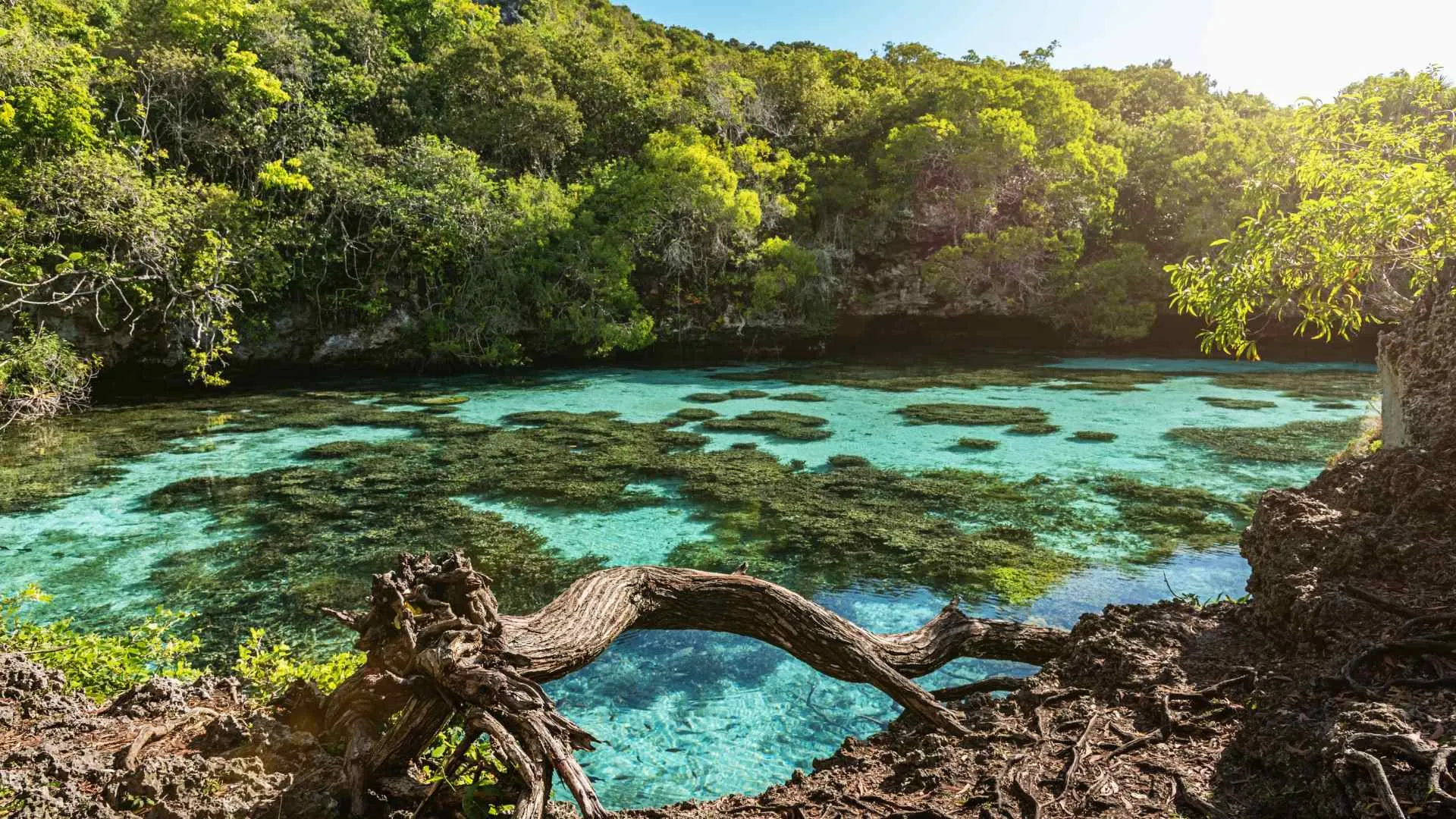
Attractions and Activities
Nouméa, a blend of natural beauty and cultural richness, offers an abundance of attractions and activities that cater to varied interests.
Whether you’re an avid beachcomber, a history enthusiast, or someone looking for adrenaline-packed adventures, Nouméa has you covered.
Natural Wonders
Beaches of Nouméa:
Nouméa’s coastline boasts a myriad of stunning beaches. From the soft sands of Baie des Citrons to the tranquil shores of Anse Vata, each beach has its unique charm. Sunbathing, swimming, and snorkeling are popular activities, with the crystal-clear waters teeming with marine life.
Amedee Lighthouse Island:
A short boat ride from Nouméa, this island is home to the iconic Amedee Lighthouse. Here, visitors can climb the lighthouse for panoramic views, explore the surrounding marine reserve, or simply relax on its pristine shores.
Cultural and Historical Sites
Tjibaou Cultural Centre:
Designed by the renowned architect Renzo Piano, this center celebrates Kanak culture and art. Its modern architecture, combined with traditional Kanak design elements, makes it a noteworthy attraction. Inside, visitors can explore exhibits on Kanak history, art, and traditions.
Old Town and Colonial Architecture:
Wandering through Nouméa’s old town, one can witness the remnants of its colonial past. Historic buildings, such as the Nouméa Cathedral and the Old Post Office, reflect the city’s architectural evolution over the decades.
Adventure Activities
Diving and Water Sports:
Nouméa’s surrounding reefs are a diver’s paradise. Vibrant coral gardens, mysterious shipwrecks, and diverse marine life promise an unforgettable underwater experience. For those more inclined towards surface water activities, windsurfing, kayaking, and paddleboarding are popular choices.
Hiking and Nature Walks:
The landscapes around Nouméa offer ample opportunities for hiking enthusiasts. Trails, such as those in the Parc Provincial de la Rivière Bleue, lead visitors through dense forests, past cascading waterfalls, and to vantage points with breathtaking views.
Local Events and Festivals
Nouméa’s vibrant spirit comes alive during its festivals.
Nouméa Carnival:
A riot of colors and music, this annual event sees locals and tourists alike celebrating with parades, dances, and culinary feasts. It’s a perfect occasion to immerse oneself in the city’s festive atmosphere.
Yam Festival:
Celebrating the significance of the yam in Kanak culture, this festival showcases traditional dances, music, and, of course, a plethora of yam-based dishes.
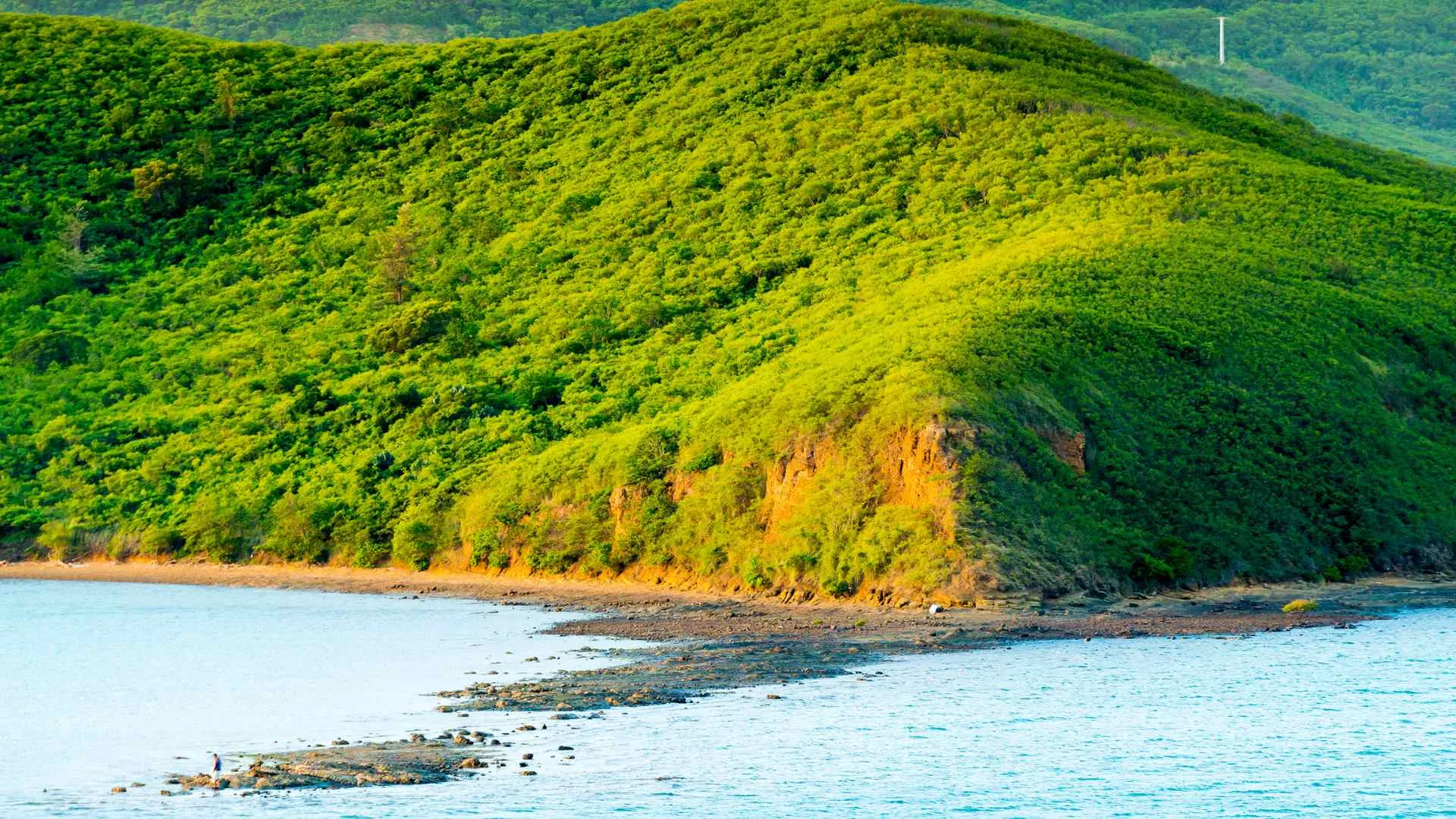
Nouméa Cruise Port
Nouméa is a popular stopover for many cruise ships navigating the South Pacific, and for good reason. Its vibrant culture, stunning natural beauty, and a host of attractions make it an ideal destination for day-trippers and those with extended shore leave.
About the Port of Nouméa
Nestled in the heart of Nouméa, the Port of Nouméa is a bustling hub that caters to both cargo and passenger vessels. For cruise passengers:
- Modern Amenities: The terminal is equipped with contemporary amenities including lounges, tourist information centers, free Wi-Fi, and a range of dining options.
- Proximity to the City: Its central location means the city’s key attractions, shopping districts, and beaches are just a short walk or drive away.
- Transportation: For those looking to explore further afield, there’s a plethora of transportation options available right outside the terminal, including taxis, buses, and car rental services.
Recommended Shore Excursions
City Tour of Nouméa:
For those with limited time, a guided city tour provides a comprehensive overview of Nouméa’s highlights. Explore the old town, visit the vibrant markets, and learn about the city’s history and culture from a local guide.
Amedee Lighthouse Island Trip:
This excursion takes visitors to the picturesque Amedee Island. With its iconic lighthouse, pristine beaches, and rich marine life, it’s a favorite among cruise passengers.
Tjibaou Cultural Centre Visit:
Dive deep into the roots of Kanak culture with a guided tour of this architectural marvel. Engage with interactive exhibits and enjoy traditional performances.
Beach and Snorkeling Adventure:
Head to the idyllic beaches of Anse Vata or Baie des Citrons. Here, you can lounge on the sandy shores, indulge in water sports, or snorkel in the crystal-clear waters.
Nouméa Aquarium:
Get a glimpse of New Caledonia’s diverse marine life without diving deep into the ocean. The aquarium, with its vast collection of coral, fish, and other marine species, offers an educational and entertaining experience.
Parc Provincial de la Rivière Bleue Adventure:
For those with a penchant for nature, this excursion promises a day of exploration. Hike through verdant trails, spot endemic bird species, and relish the serene beauty of the park.
Tips for Cruise Passengers
- Local Currency: While many establishments accept credit cards, it’s advisable to carry some local currency (CFP Franc) for smaller purchases or in places where cards might not be accepted.
- Respect Local Customs: Remember to dress modestly when visiting religious or cultural sites. Familiarize yourself with local customs, especially if participating in traditional ceremonies or events.
- Stay Informed: Check the departure time of your cruise ship and factor in sufficient time for return, especially if venturing further from the port.
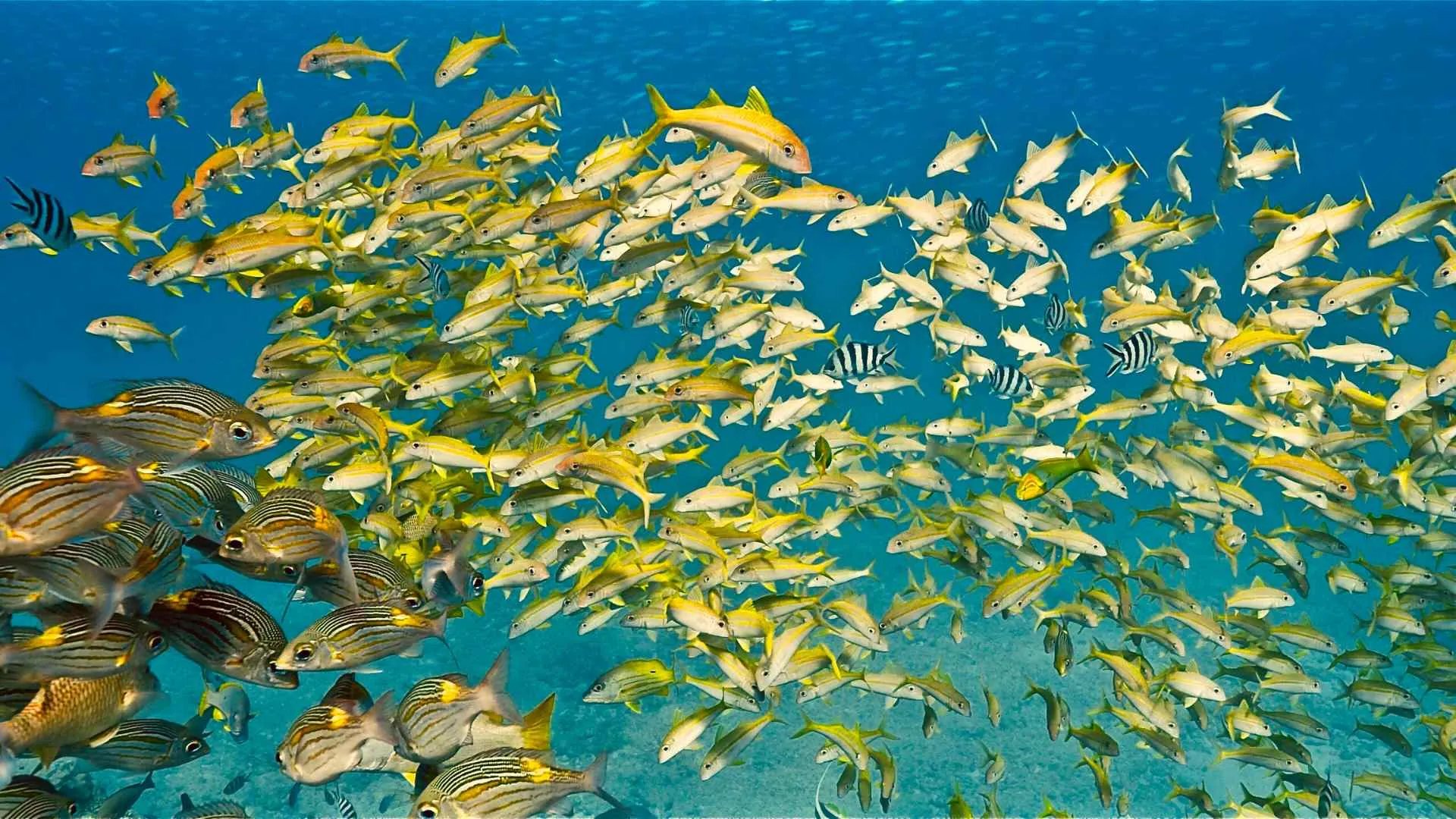
Events and Festivals
Nouméa, with its rich cultural mosaic, celebrates life and traditions with a fervor that’s palpable in its many events and festivals.
Whether it’s the rhythmic beats of traditional Kanak music, the vibrant hues of carnival parades, or the tantalizing aromas from food fests, there’s always a reason to join in the festivities.
Traditional Celebrations
Yam Festival:
As previously mentioned, this festival celebrates the importance of the yam in Kanak culture. Beyond the variety of yam dishes, it’s an occasion for communal dances, music, and traditional ceremonies that mark the beginning of the yam harvest.
La Fête des Mères (Mother’s Day):
While Mother’s Day is celebrated globally, in Nouméa, it’s particularly special. Families come together for lavish feasts, with restaurants across the city offering special menus to mark the occasion.
Cultural and Arts Festivals
FrancoFOLIES Nouméa:
This music festival celebrates the best of Francophone music. Artists from New Caledonia, as well as international stars, grace the stages in various city locations, offering a mix of genres from pop to rock and jazz.
Nouméa International Film Festival:
An ode to cinematic brilliance, this festival screens a selection of international and regional films. It’s a great way for cinephiles to acquaint themselves with Pacific narratives and global cinema trends.
Seasonal and Special Events
Nouméa Carnival:
The streets of Nouméa come alive with color, music, and dance during this annual event. Parades with ornate floats, costumed performers, and live bands make this a can’t-miss spectacle.
New Caledonia International Marathon:
Held in Nouméa, this marathon attracts participants from around the world. Even if you’re not running, the energy and enthusiasm are contagious, with many events and festivities surrounding the main race.
French National Day (Bastille Day):
Celebrated on July 14th, Nouméa’s French heritage shines brightly. Expect fireworks, parades, and plenty of French culinary delights.
Tips for Festival-Goers
- Plan Ahead: Some of these festivals attract large crowds, so it’s advisable to book accommodations and transportation well in advance.
- Engage with Locals: Festivals offer a unique opportunity to engage with locals and learn more about their traditions and way of life. Don’t hesitate to strike up a conversation or join in the dances!
- Stay Hydrated and Sun-protected: Many events are outdoor, so ensure you have water, sunscreen, and hats to protect against the sun.
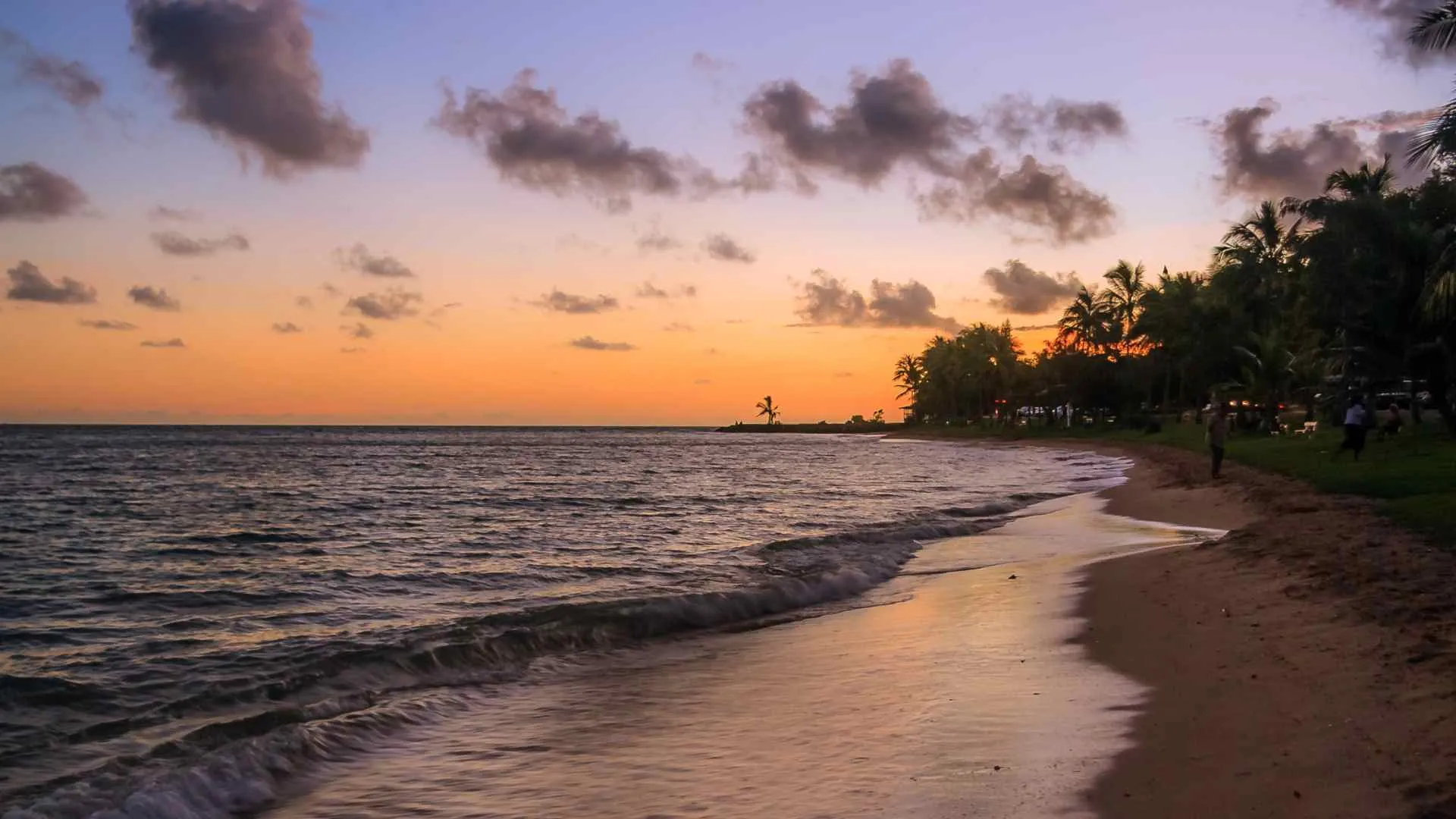
Off the Beaten Path
For those looking to delve deeper into Nouméa’s essence, stepping away from the usual tourist hotspots can be a rewarding experience.
Away from the bustling city center and popular beaches, Nouméa hides pockets of serenity, untold stories, and unique experiences that beckon the more adventurous traveler.
Hidden Beaches and Coves
Plage de Port Ouenghi:
Tucked away on the western coast, this beach is a gem often overlooked by tourists. With its white sands and azure waters, it offers a tranquil escape from the city’s hustle.
Secret Lagoons:
Venture out to find hidden lagoons fringed by mangroves. These serene water bodies, while slightly challenging to access, are a haven for birdwatchers and those seeking solitude.
Enigmatic Historical Spots
The Forgotten Wharves:
Old, disused wharves dot Nouméa’s coastline, each with tales of ships, traders, and bygone eras. While they might seem mundane, a local guide can breathe life into their stories, making for an enlightening experience.
Ruins of Old Plantations:
Scattered across Nouméa’s outskirts are remnants of old coffee and vanilla plantations. While nature has reclaimed much of these sites, they offer a glimpse into the city’s agricultural past.
Nature’s Hidden Treasures
Mount Koghi:
While it’s known to locals, many visitors overlook this verdant mountain range. Hiking trails lead to waterfalls, dense forests, and viewpoints that offer breathtaking vistas of Nouméa and beyond.
Limestone Caves:
Tucked away in the hinterlands are caves formed from limestone. Equipped with a torch and a sense of adventure, explore these underground wonders and marvel at the stalactites and stalagmites.
Local Hangouts
Local Artisan Markets:
Away from the touristy markets are smaller, local artisan markets. Here, you can find handcrafted jewelry, woven goods, and other crafts that reflect Nouméa’s rich artistic heritage.
Family-owned Bistros:
Skip the popular restaurants and dine at a family-owned bistro. Not only will you enjoy authentic local cuisine, but you’ll also get to hear tales and stories that aren’t found in travel guides.
Tips for Off-the-Path Explorers
- Hire a Local Guide: They often know the best-hidden spots and can provide context and history that enriches the experience.
- Safety First: Some off-the-beaten-path spots might be in remote areas. Ensure you inform someone about your plans and have necessary supplies.
- Respect Local Sensibilities: Some areas, especially sacred sites, may have restrictions or require certain etiquettes. Always inquire and respect local norms.
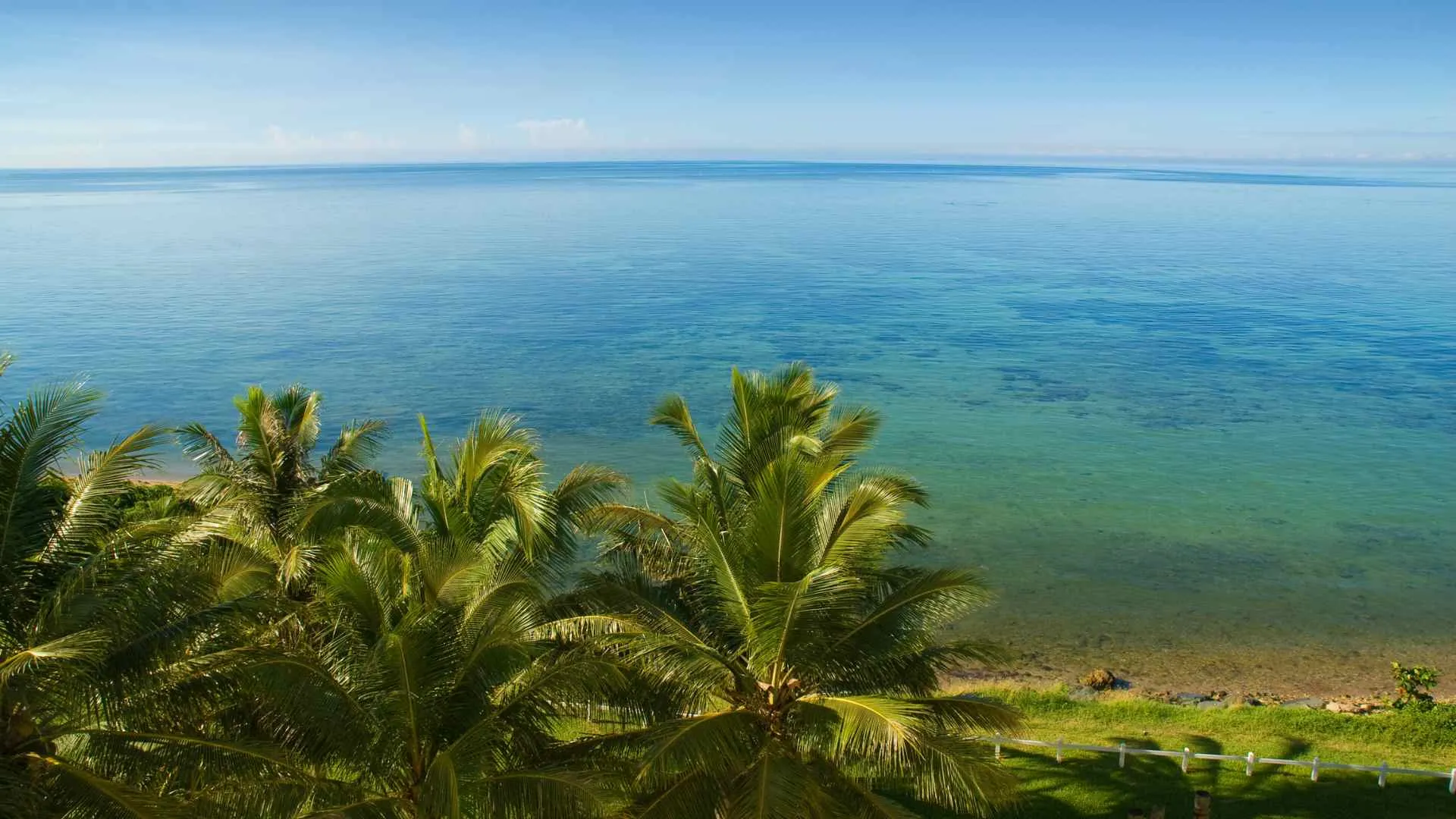
Travel Tips and Safety
Visiting Nouméa promises a memorable experience. However, to ensure a smooth and enjoyable journey, it’s essential to arm oneself with some travel insights.
From understanding local customs to staying safe, these traveling tips are your trusty companions as you navigate Nouméa’s streets and beaches.
Essential Travel Tips
Language:
While French is the official language, many locals also speak English, especially in tourist-centric areas. Learning a few basic French phrases, however, can be invaluable and is often appreciated by the locals.
Currency and Payment:
The local currency is the CFP Franc. While credit cards are widely accepted, it’s advisable to carry some cash, especially when visiting smaller establishments or remote areas.
Climate and Clothing:
Nouméa has a tropical climate. Light, breathable clothing is recommended. However, when visiting religious or traditional sites, dressing modestly is crucial.
Connectivity:
Wi-Fi is available in most hotels, cafes, and public spaces. Consider purchasing a local SIM card if you require consistent internet access.
Tipping:
Tipping isn’t a common practice in Nouméa. However, if you’ve received exceptional service, a small tip is appreciated.
Safety Tips
Water Activities:
While Nouméa’s waters are generally safe, always adhere to safety guidelines when snorkeling, diving, or swimming. Be cautious of strong currents and always inform someone when heading out for water activities.
Sun Protection:
The sun can be intense. Always use sunscreen, wear hats, and hydrate regularly.
Local Wildlife:
While encounters with dangerous wildlife are rare, it’s always good to be cautious. If hiking, be aware of your surroundings and watch out for snakes or other wildlife.
Emergency Numbers:
Familiarize yourself with local emergency numbers. In Nouméa, dial 15 for medical emergencies, 17 for police, and 18 for fire services.
Travel Insurance:
Always travel with insurance that covers medical emergencies, especially if you plan on engaging in adventure activities.
Respect Local Customs:
Engage with locals politely and respect local customs, especially when participating in traditional events or visiting sacred sites.
Night Safety:
While Nouméa is generally safe, it’s always a good practice to avoid poorly-lit areas at night and always let someone know your whereabouts.
A Final Note
Nouméa, like any other destination, requires a blend of curiosity and caution. By respecting local norms, staying informed, and being prepared, you can ensure that your Nouméa adventure is as enriching as it is safe.
Conclusion
Nouméa, a vibrant blend of French sophistication and Pacific island charm, awaits every traveler with open arms. From its rich history to delectable cuisine, serene hideaways, and pulsating festivals, it offers a cornucopia of experiences.
As you prepare to embark on this journey, remember that beyond the sights and sounds, it’s the warmth of its people and the rhythm of its heart that will leave an indelible mark on your soul.
So, pack your bags, embrace the adventure, and let Nouméa reveal its many wonders to you. Here’s to unforgettable memories in this South Pacific gem!
FAQs on Nouméa, New Caledonia
1. What is the best time to visit Nouméa?
The ideal time to visit Nouméa is during the dry season, which spans from September to November. During this period, you can expect warm temperatures, less rainfall, and clearer skies.
2. Do I need a visa to visit Nouméa?
Nouméa is the capital of New Caledonia, a special collectivity of France. Visa requirements vary based on your nationality. It’s advisable to check with the local French consulate or embassy before planning your trip.
3. Is it safe to drink tap water in Nouméa?
Yes, the tap water in Nouméa is safe to drink. However, if you have a sensitive stomach, you might want to stick to bottled water.
4. What power plug/socket is used in Nouméa?
Nouméa uses Type F and Type I sockets. The standard voltage is 220V, and the standard frequency is 50Hz. Ensure you have the right adapter if your devices don’t match these specifications.
5. Is Nouméa expensive for tourists?
Nouméa, like many island destinations, can be relatively more expensive compared to some other places due to import costs. However, with careful planning, budget accommodations, and local dining, you can manage a cost-effective trip.
6. Are there any health concerns or vaccinations needed before visiting?
It’s always a good practice to be updated on routine vaccinations. Additionally, some travelers opt for hepatitis A and typhoid vaccinations. Always consult with your healthcare provider before traveling.
7. What’s the primary mode of transportation in Nouméa?
While walking is great for short distances, Nouméa also has a public bus system called “Karéo” that covers most parts of the city. Taxis and car rentals are also available.
8. Can I use my mobile phone in Nouméa?
Yes, international roaming is available. However, for longer stays or to avoid hefty roaming charges, consider purchasing a local SIM card.
9. Is Nouméa family-friendly?
Absolutely! With its beaches, parks, and family-friendly attractions, Nouméa is a great destination for families. Additionally, many hotels offer amenities catering to younger guests.
10. What’s the local currency, and where can I exchange money?
The local currency is the CFP Franc (XPF). You can exchange money at banks, hotels, and the airport. ATMs are also widely available.
11. How is the nightlife in Nouméa?
Nouméa boasts a vibrant nightlife with a mix of bars, nightclubs, and beachfront lounges. Whether you’re looking for a tranquil evening by the sea or a night of dancing, Nouméa has something to offer.
12. Are there any specific customs or etiquettes I should be aware of?
Respect is essential in Melanesian culture. When visiting sacred sites or participating in traditional ceremonies, always ask for permission first. Dress modestly when visiting religious sites and always greet locals with a friendly “Bonjour” during the day.
13. Are English-speaking guides available?
Yes, many tour operators in Nouméa offer services in English. It’s always advisable to check in advance if you’re specifically looking for English-speaking guides.
14. How is the shopping scene in Nouméa?
Nouméa offers a mix of local markets, boutique stores, and modern malls. Popular items to shop for include Melanesian crafts, French luxury goods, and locally-produced vanilla.
15. Are there any endemic species or unique flora/fauna in Nouméa?
New Caledonia, including Nouméa, is home to unique flora and fauna. The Kagu, a flightless bird, is endemic to New Caledonia. The island’s rich biodiversity is also reflected in its unique plant species, many of which can be seen in local parks and reserves.
16. What activities are available for adventure seekers?
From diving in crystal-clear waters, hiking in verdant terrains, to paragliding over the city, Nouméa offers a plethora of activities for thrill-seekers.
17. Are there vegetarian or vegan dining options in Nouméa?
Yes, with the global rise in vegetarian and vegan diets, many restaurants in Nouméa offer vegetarian and vegan options on their menus. It’s always a good idea to ask in advance or check online reviews.
18. What’s the time zone of Nouméa?
Nouméa is in the UTC+11 time zone.
19. How friendly is Nouméa for differently-abled travelers?
While many modern establishments, hotels, and popular tourist spots in Nouméa are equipped for differently-abled travelers, it’s advisable to check in advance, especially if you have specific needs.
20. Can I rent a bicycle or scooter to explore Nouméa?
Yes, several rental services in Nouméa offer bicycles and scooters. It’s a popular way to explore the city at your own pace, especially the scenic coastal areas.
